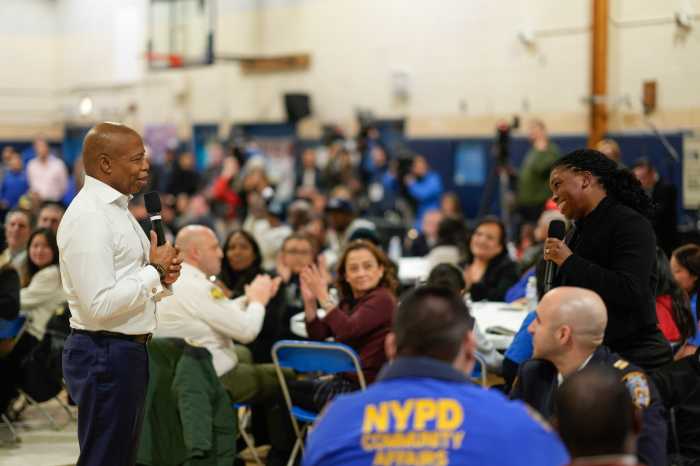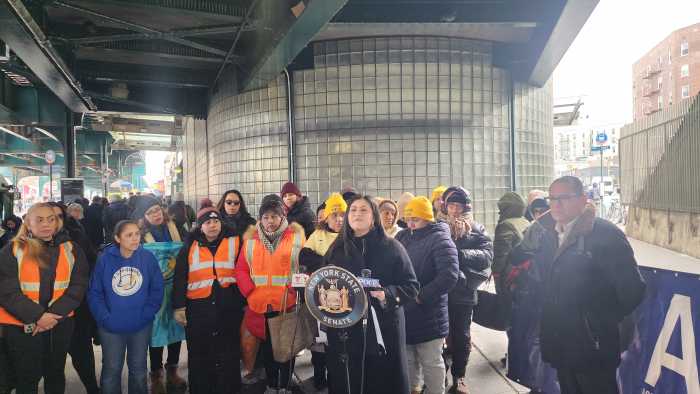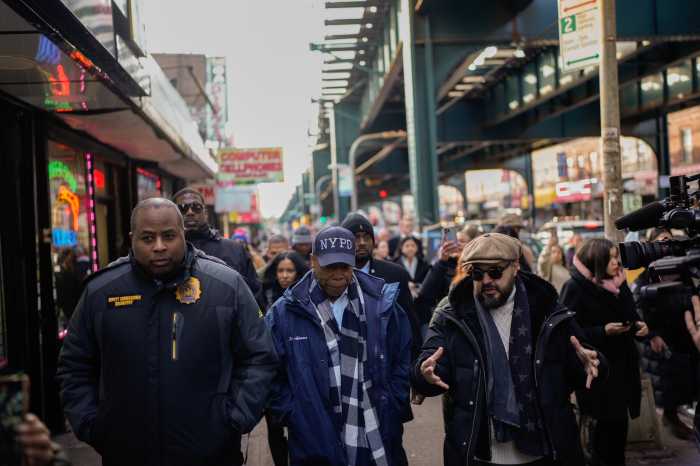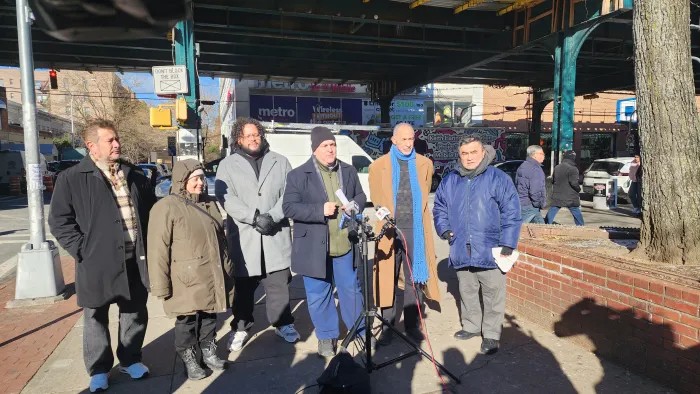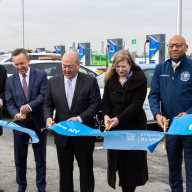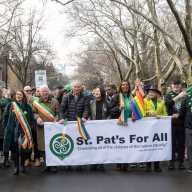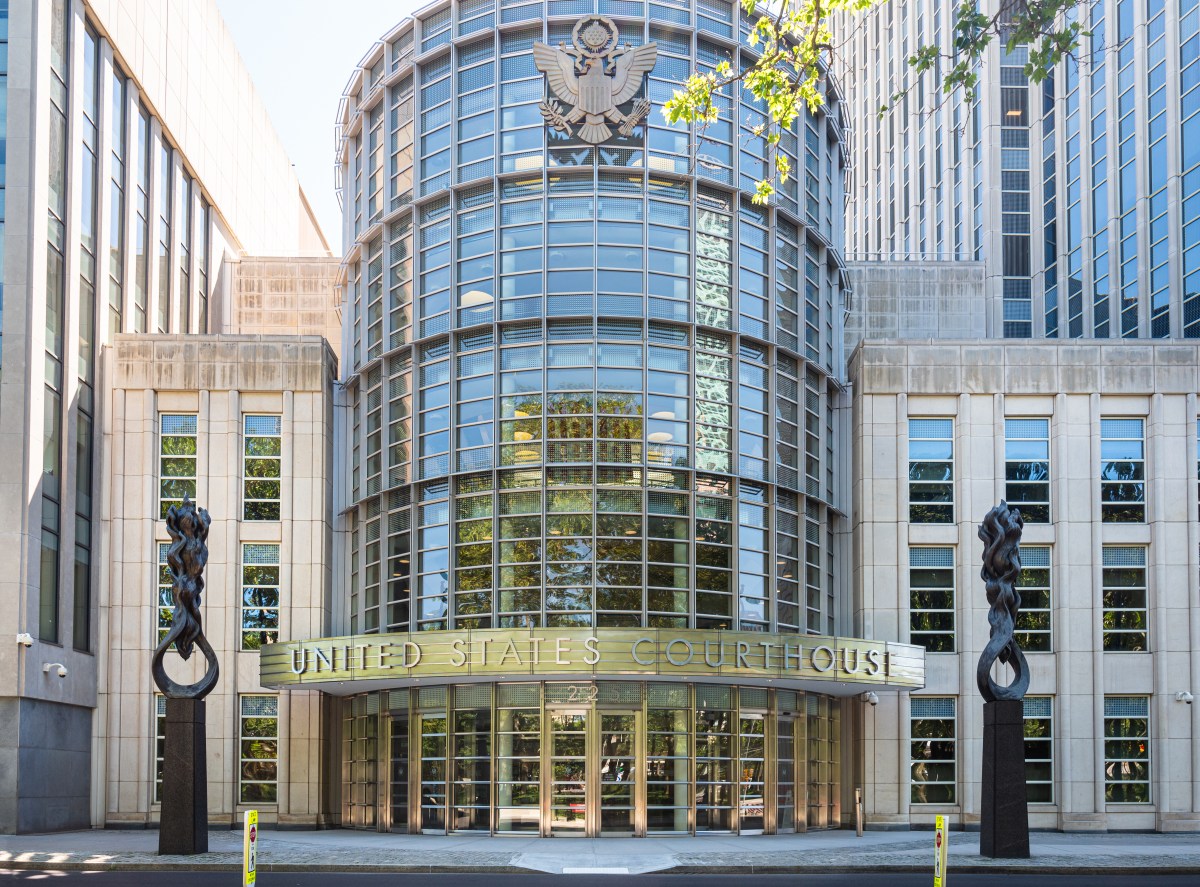As the termed-out Francisco Moya prepares to leave office in Council District 21, a slew of candidates have lined up to replace him in one of the most hotly-contested districts in the upcoming City Council elections. Erycka Montoya, a staffer for Council Speaker Adrienne Adams, has touted her “lived experience” in the local community as one of the chief drivers of her campaign for District 21.
Montoya said she was inspired to run for the City Council during President Donald Trump’s first term in office, stating that the “entire city is under attack” from the Trump Administration, while District 21 is “feeling it in every way.”
The race to succeed Moya has become an increasingly crowded field in recent months, with Montoya set to battle it out with Sandro Navarro, district director for State Sen. Jessica Ramos, and LaGuardia Airport redevelopment consultant Shanel Thomas-Henry in the upcoming Democratic primary. District leader Yanna Henriquez, 2021 challenger David Aiken, and former Council Member Hiram Monserrate, who previously pleaded guilty to corruption charges related to his past council tenure, are also contesting the June primary.
The district has been under intense scrutiny in recent months, with major developments ongoing and on the horizon. Roosevelt Avenue, which runs through the district, has also been under the spotlight due to a rise in crime along the thoroughfare, while the area also boasts one of the most immigrant-heavy populations in the city.
Montoya, the associate deputy director of Adams’s Intergovernmental Affairs Division, is campaigning on a slate of priorities for the district, including improved access to affordable housing and transit and increased investments in education.
“I think it’s really about understanding the intersectionality of everything,” Montoya said. “You can’t just talk about housing because if you’ve got housing that’s affordable but really far from transit, then people can’t get to their work and that adds costs.”
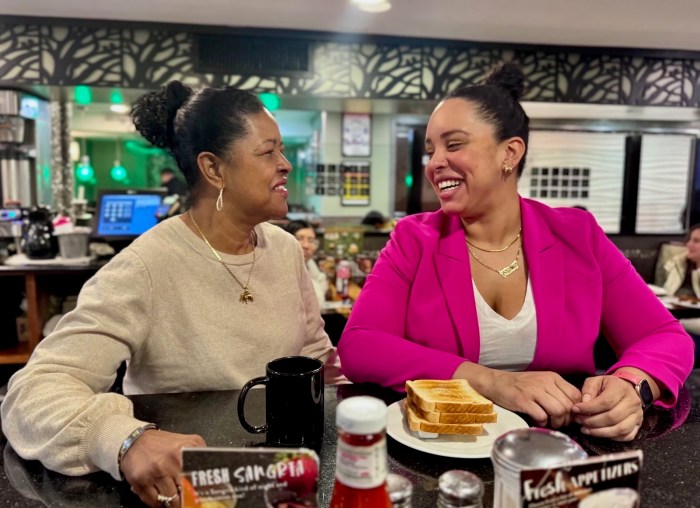
Montoya, who grew up in a mixed-status household as the daughter of immigrant parents, also said it is critical to safeguard the District 21 amid fears of deportations during the second Trump Administration.
She vowed to fight to maintain and strengthen New York’s sanctuary city status if she is elected to the council later this year and added that she will ramp up efforts to ensure that immigrant communities are aware of their rights when it comes to ICE.
Montoya said she personally witnessed a significant drop-off in foot traffic for local businesses during Trump’s second term in office due to fears of a crackdown on undocumented migrants.
Council District 21 encompasses the neighborhoods of Elmhurst, Jackson Heights, LeFrak City and Corona. It is home to a portion of Roosevelt Avenue, a thoroughfare that has gained citywide recognition in recent years due to a rise in crime and quality-of-life issues.
Moya, along with Mayor Eric Adams, announced the 90-day multiagency plan Operation Restore Roosevelt last October to tackle crime along the avenue, resulting in over 11,000 summonses and the shutdown of more than a dozen illegal brothels, according to city officials.
Montoya, however, said she did not agree with the methods of the plan, stating that Operation Restore Roosevelt over-emphasized enforcement.
Instead, Montoya called for a “multi-pronged” approach to quality-of-life issues in the neighborhood, attributing some of the issues to “years of disinvestment” in the local community.
Furthermore, Montoya believes that the operation unfairly focused on sex workers rather than tackling the bigger issue of sex trafficking.
“Attacking just the sex workers, or fining them or arresting them isn’t going to take care of the issue,” Montoya said. It’s kind of like a game of Whack a Mole, if that’s the only part we do.”
Make the Road Action, which endorsed Montoya for the District 21 seat last month, held a protest following the announcement of Operation Restore Roosevelt last October, stating the policing plan would unfairly attack sex workers. Montoya shares the same belief, stating that the plan attacked the “most vulnerable” populations in the city.
Montoya further believes street vendors operating in the area should have expanded access to work permits, and sex workers deserve expanded access to work opportunities, which would allow them to seek safe employment in other fields. She said expanded access to vendor licenses would have the dual-pronged effect of raising food safety standards and ensuring that vendors feel safer when operating on the avenue.
Meanwhile, as Moya prepares to leave office, he leaves behind a legacy that has potentially brought two major developments to the area in the form of a 25,000 soccer-specific stadium and adjacent housing development at Willets Point and the $8 billion Metropolitan Park casino project by Citi Field. The Metropolitan Park project is contingent on the bid winning a downstate gaming license from the Gaming Commission later this year.
Metropolitan Park, which recently passed through the ULURP process, is now out of Montoya’s hands, but she vowed to fight to ensure that the Metropolitan Park team upholds its commitments to the local community, including promises of thousands of union jobs and a wealth of community amenities, such as a new ADA accessible Mets-Willets Point subway station and a 25-acre public park.
Regarding the New York City FC soccer stadium, Montoya pledged that she would fight to ensure that the adjacent housing development did not drive up prices for existing residents in the area and potentially force out long-term residents.
Montoya, a self-described straphanger, also vowed to fight for improved transport in the district, noting that there are areas of District 21 that are not close to a subway line. That, Montoya says, highlights the need to expand and improve the bus service in the area, while she also hopes to make transit more accessible for more local residents.
“We have many stations that are not ADA accessible, which is problematic,” Montoya said. “We need to think about design because one of the issues is often we are not thinking about how people use transit. If someone is there with their grocery cart and a stroller, we also need to be thinking about the designs that we’re using and make sure that we’re designing for the way people use transit.”
She has also pledged to fight for expanded investment in afterschool programming, pointing to the value such programs have for families in the district.
“That’s really a critical moment where kids can explore writing. We’re providing activities or sports where kids are able to express themselves and realize other talents,” Montoya said.
She added that afterschool programming provides a lifeline to parents who have to work late or cannot afford to put their children through paid programs.
Montoya further pledged to be even “more involved” in the local community than Moya during his term in office and said her “strong constituent services” would set her apart from other candidates in the field.


